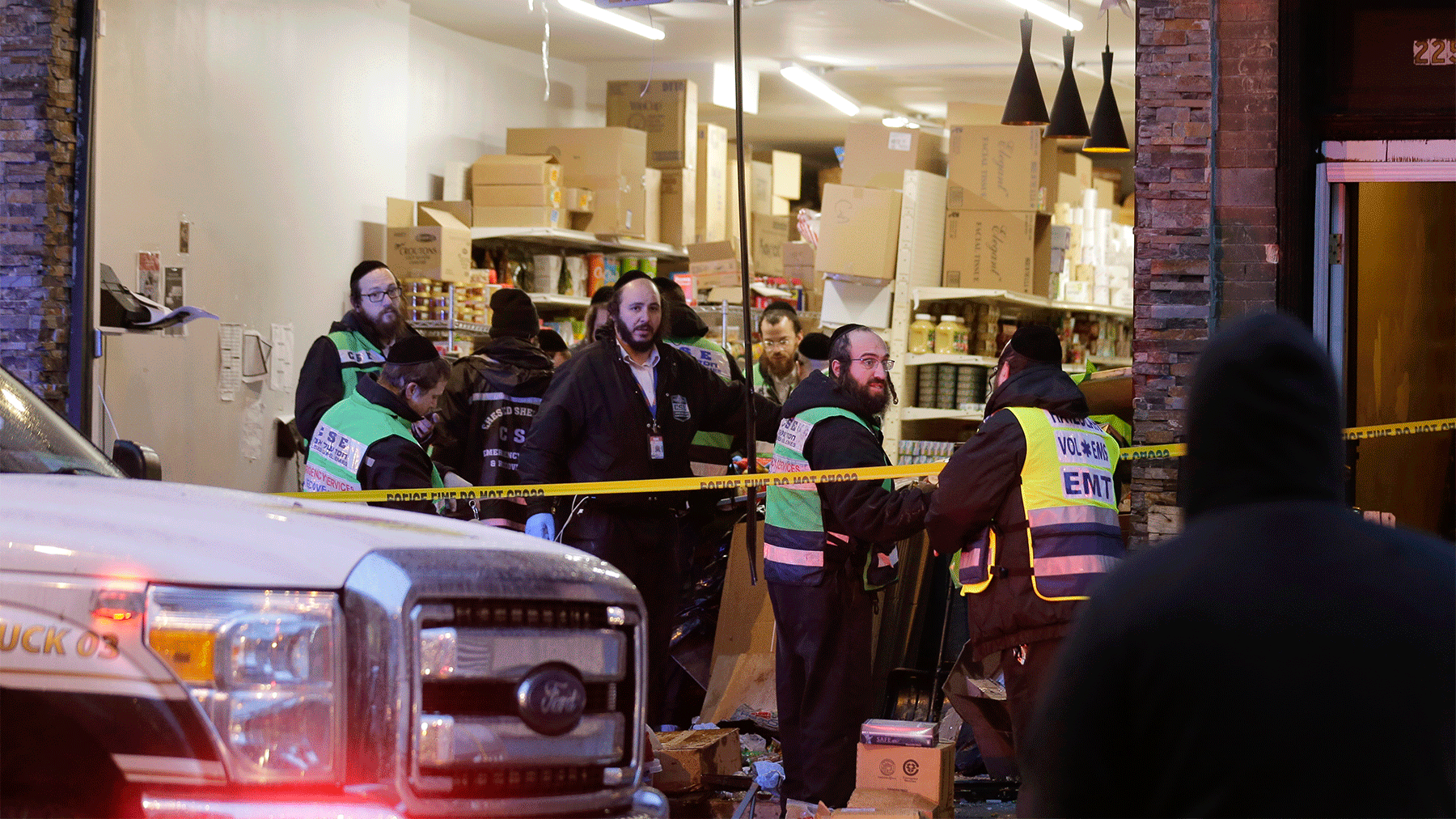One of the two people who attacked a kosher supermarket in Jersey City, New Jersey, this week and fought a prolonged gun battle with police reportedly published antisemitic and anti-police posts online and may have ties to a Black separatist movement known for harboring anti-white and antisemitic beliefs.
Five people, including both assailants, were killed at the market. A police officer was shot to death earlier that day at a near by cemetery.
Authorities identified the attackers as David N. Anderson, 47, and Francine Graham, 50. Several media outlets reported that law enforcement officials said they were looking into Anderson’s possible links to the Black Hebrew Israelite movement.
Who are Black Hebrew Israelites?
The SPLC lists 144 Black Hebrew Israelite (BHI) groups as Black separatist hate groups because of their anti-white and antisemitic beliefs.
Although many Hebrew Israelites are neither explicitly anti-white nor antisemitic and do not advocate violence, there is a rising extremist sector within the movement.
The BHI hate groups listed by the SPLC believe in ideas of Black supremacy and bigotry against Caucasians, Jews and members of the LGBTQ community. The movement is based on a Black separatist theology dating to the 19th century that preaches people of color are the true children of God. They believe that, as members of the 12 Tribes of Israel – consisting only of African Americans, Hispanics and Native Americans – they are God’s “chosen people.” Jews are considered “imposters.” Caucasians and members of the LGBTQ community are deemed “devils.” Extreme Black Hebrew Israelites believe that individuals outside the movement are deserving of slavery or death.
The most numerous of the BHI groups in the United States are under the banners of Israel United in Christ, the Israelite School of Universal Practical Knowledge, and Great Millstone.
The most recent significant act of violence perpetrated by a Black separatist occurred in Dallas on July 6, 2016, when Micah Xavier Johnson ambushed Dallas police officers during a peaceful protest against police brutality, killing five and wounding nine. According to news reports, Johnson’s social media accounts contained anti-white rhetoric and photos demonstrating his belief in Black separatist ideas. It was later learned that Johnson had attempted to join a Black separatist group, the New Black Panther Party, but was ousted by the group’s leader because of his radical views and perceived mental instability.
More from the SPLC
Explore our Hate Map—In 2018, we tracked 1,020 hate groups across the U.S.
Photo by Seth Wenig/Associated Press

